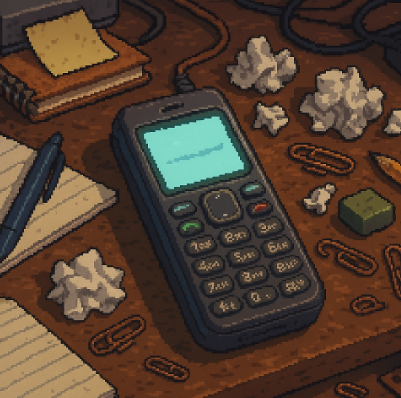
Your Phone Isn’t the Problem—But Where It Sits Might Be
Let’s be honest: your phone’s just sitting there, glowing softly, whispering sweet TikToks and unread group chats. You’re deep in a work task—laser-focused—until buzz, you’re checking memes, replying to texts, and wondering how you got here.
What if I told you that simply moving your phone a few feet away—not locking it, not turning it off, just… placing it across the room—could drastically change how often you pick it up? And here’s the kicker: it won’t actually make you work more.
Wait, what?
That’s the mind-bending result of a new study that looked at how physical proximity to our phones changes how we work, play, and procrastinate. The results might not be what you expect—but they do reframe how we should think about distraction, productivity, and that little slab of glass that lives in our pockets.
The Experiment: Phones Across the Room and Minds at Work
Researchers at the London School of Economics invited 22 participants to work in a private room for two full five-hour sessions—basically a mini workday. The catch? On one day, they could keep their phone right next to them. On the other, the phone had to sit about five feet away—still accessible, but you had to get up to reach it.
That’s it. No fancy restrictions. No nagging apps or Do Not Disturb settings. Just a little inconvenience.
And the results were fascinating.
Surprise! Less Phone Time ≠ More Work Time
You might think: “Duh, if the phone is harder to reach, people will use it less, and they’ll get more work done!”
That first part? Totally true. When the phone was within reach, people picked it up nearly three times as often and spent almost twice as much time on it.
But the second part? Nope.
Turns out, when the phone was out of reach, people didn’t magically become productivity machines. Instead, they shifted their goofing off to the computer—shopping, reading the news, browsing social media (hello, desktop Facebook). Total time spent on work vs. leisure? About the same, regardless of where the phone was.
In other words, the urge to take breaks and zone out is strong, and your brain will find a way—even if your favorite tool for doing it is a little less handy.
So… Are Phones Actually That Distracting?
Yes and no. The study did find that when phones were within reach, they broke up the flow of work more often. People didn’t spend longer on their phones per session—but they kept checking in, again and again, breaking concentration.
Still, the total amount of leisure activity didn’t really change. It just got reassigned.
Think of your phone like the snack drawer at your desk. When it’s right in front of you, you reach for it. Move it to the breakroom? You snack less. But you might just start wandering over to the vending machine instead. It’s not the snack—it’s the habit.
Forget “Smartphone Addiction.” Try “Habitual Diversion.”
This study challenges the idea that smartphones are evil productivity suckers. Instead, they’re just really convenient distractions. Take that convenience away, and humans do what we’ve always done: find the next easiest way to not do what we’re supposed to.
And here’s the kicker—this all happened without any tech restrictions, blocked apps, or productivity software. Just a change in furniture layout.
So instead of blaming the phone for every lost minute, maybe it’s time to reframe the conversation. The issue isn’t the device. It’s our relationship to the break it offers.
The Power of Awareness (and Furniture Placement)
One twist? People noticed when the phone was out of reach. They reported thinking about it less, using it less, and even underestimating how much they used it when it was nearby. Just that little bit of effort—getting up to grab it—seemed to nudge them toward more mindful use.
Even better, if they had the “out of reach” day first, they used their phones less the next day, even when it was back on the desk. That might suggest something like a mindfulness effect—just being aware of your habits makes a difference.
So, What Should You Do With This?
If you’re battling the constant itch to check your phone while working, don’t beat yourself up. Your brain isn’t broken. You’re not weak. You’re just human.
But here’s a trick: try moving your phone just a few feet away. Not in another room. Not locked in a drawer. Just… out of arm’s reach.
It might help you focus. It might not increase your output, but it could reduce that fragmented, “what was I doing again?” feeling. And hey, it’s worth a shot.
Plus, it just might make your relationship with your devices a little less reactive—and a little more on your terms.
Let’s Explore Together
How do you manage distractions at work? Ever tried leaving your phone across the room? What happened?
💬 Tell us in the comments!
🔁 Share this with a friend who can’t stop doomscrolling.
📱 Or, y’know, go move your phone and see what happens.
Questions to Ponder:
- If your phone magically vanished during work hours, what would you do instead?
- What’s the weirdest thing you’ve done to avoid checking your phone?
- What’s your best trick for staying focused?
Fight for Science:
The stakes for science have never been higher. In today’s turbulent political climate, staying informed is critical. Subscribe to our weekly newsletter to get the latest discoveries, major breakthroughs, and stories that matter most. Designed for teachers and science enthusiasts, this free resource enhances your teaching and understanding of science in real time. Subscribe today to ensure science stays at the forefront of public conversation! If you liked this blog, please share it—your referrals help This Week in Science reach more people when it’s needed most.



